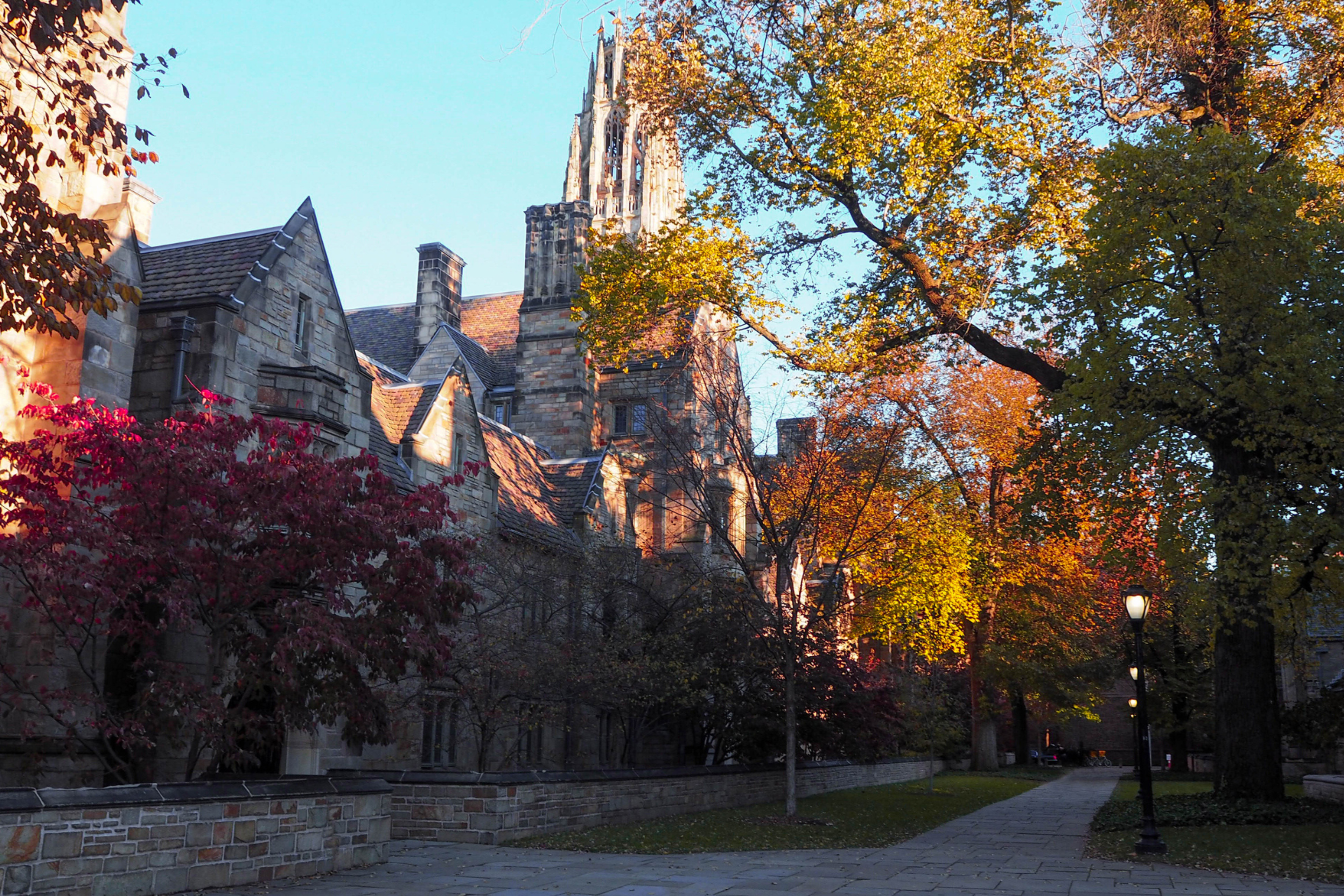The Ultimate Guide to Harvard Pre-Med: How to Prepare for Success
Discover how to navigate the competitive world of Harvard pre-med with our comprehensive guide.
Posted March 6, 2025

Table of Contents
Harvard University is one of the most prestigious institutions for premed students, offering unmatched resources, mentorship, and opportunities. Aspiring doctors often see Harvard Medical School as the pinnacle of medical education, and preparing for it starts with a strong premed foundation. This guide provides a comprehensive look at how to excel as a Harvard premed, from mastering prerequisite courses to building a standout medical school application.

What is Harvard Premed, and How Does It Work?
Harvard Premed is not a singular MD PhD program but a structured pathway through Harvard College and Harvard Extension School that prepares students for medical school. Many Harvard students take advantage of this flexible system, which allows them to pursue an undergraduate degree in diverse disciplines while fulfilling course requirements for medical school. With access to house premedical tutors, career services, and pre-health peer liaisons, students are guided at every step of their journey.
Harvard Premed Requirements
Harvard offers an exceptional and varied framework for premed students, blending rigorous social sciences with the flexibility to explore humanities and other disciplines. Students can pursue majors ranging from Integrative Biology and Chemistry to Slavic Languages, all while meeting the foundational requirements for medical school. Whether you’re part of Harvard College or Harvard Extension School, creating a structured plan early on is essential for success.

Planning for Premed Success
Meeting Harvard medical school requirements demands careful consideration and strategic planning. The Harvard Premedical Blue Book provides detailed pathways for fulfilling premedical requirements, helping students map out their coursework and extracurricular commitments. Notably, approximately 75–80% of Harvard students applying to medical school wait until their senior year or later. This approach allows students to balance their demanding undergraduate experience with the rigorous preparation needed for medical school applications.
To assist in your planning, we’ve provided an overview of the most common premedical requirements, along with examples of Harvard courses that satisfy them:
Common Premed Requirements and Associated Harvard Courses
| Requirement | Courses at Harvard |
| Biology (one year with lab) | Life Sciences 1b, Life Sciences 2, Molecular & Cellular Biology 60, Organismic & Evolutionary Biology 10, BIOS S-1a (Summer School) |
| General Chemistry | Life Sciences 1a, Physical Sciences 11, Engineering Sciences 181 |
| Organic Chemistry | Chemistry 17 and 27, CHEM S-20ab ( Harvard Summer School) |
| Physics (one year with lab) | Physical Sciences 2 and 3, Applied Physics 50a and 50b, PHYS S-1a and S-1b (Harvard Summer School) |
| Mathematics ( one semester) | Math 1a, Math 1b, Statistics 102, Life Sciences 50b |
| English (one year) | Expos 10 and Expos 20, Literature or Humanities courses |
These courses are flexible enough to accommodate various interests and majors. For example, a biology major will find that many required courses align with their concentration, while humanities majors may need to take additional science courses alongside their bachelor’s degree work.
Sample Course Plans for Premed Students
To ensure smooth progress, Harvard provides sample timelines for completing premed requirements. Below are two common pathways:
Four-Year Plan (Applying after Senior Year):
- Freshman Fall: Life Sciences 1a, Math 1a
- Sophomore Spring: Physical Sciences 11, Statistics 102
- Junior Spring: Chemistry 27, elective
- Senior Spring: Physics 3 or Applied Physics 50b
Three-Year Plan (Applying after Junior Year):
- Freshman Fall: Life Sciences 1a, Math 1b
- Sophomore Spring: Chemistry 27, Life Sciences 1b
- Junior Spring: Physics 3 or Applied Physics 50b
Harvard allows students to customize their paths while ensuring they meet med school expectations. It’s important to note that medical schools prioritize academic excellence and diverse experiences over specific majors. Students are encouraged to choose a major that genuinely interests them, as this can contribute to higher GPAs and more meaningful engagement.
By consulting resources like the Premedical Blue Book, seeking guidance from Harvard's house premedical tutors, and strategically incorporating summer classes where needed, students can meet their requirements without becoming overwhelmed. Proper planning and adaptability are key to thriving in the Harvard premed environment.

Research Opportunities and Clinical Experience
One of the hallmarks of Harvard Premed is the emphasis on experiential learning. Premed students need or are encouraged to participate in cutting-edge research opportunities, often collaborating with leading faculty members. Clinical exposure through shadowing nurse practitioners, volunteering in hospitals, or interning in medical facilities allows students to gain a firsthand understanding of the medical profession.
These experiences not only enrich a student's perspective but also strengthen their medical school application by showcasing leadership skills, critical thinking, and a passion for patient care.
Balancing Academics with Extracurriculars
Harvard premed students are known for excelling academically while engaging in meaningful extracurricular activities. Leadership roles in student organizations, participation in community service projects, and membership in student groups like the Harvard Alumni Association demonstrate the ability to manage time effectively and contribute to the community.
Students are also encouraged to explore interests outside the classroom, such as sports teams or artistic pursuits, which highlight a well-rounded personality to admissions committees.
How to Create a Winning Harvard Medical School Application
The application process for medical school is multifaceted, requiring a blend of academic excellence, compelling narratives, and thorough preparation. Key steps include:
- Preparing for the MCAT, with a focus on integrating knowledge from prerequisite courses.
- Writing a standout personal statement that highlights unique experiences, motivations, and career aspirations.
- Leveraging Harvard’s career services for mock interviews and application reviews.
Admissions committees value applicants who demonstrate not just intellectual ability but also the emotional intelligence and leadership skills necessary for the medical profession. For more guidance on your medical school application, it is best to seek advice from experts.
Harvard Premed Acceptance Rates and Success Stories
Harvard University has a distinguished history of preparing its premed students for successful admission into top-tier medical schools, including its own Harvard Medical School (HMS). In recent years, approximately 85–90% of Harvard premed applicants have gained acceptance into medical schools, with this figure rising to 92–95% for those maintaining a GPA above 3.5.
This high acceptance rate represents Harvard's comprehensive support system, which includes:
- Advising resources: Harvard provides dedicated premedical advisors and house premedical tutors who offer personalized guidance on course selection, extracurricular involvement, and the medical school application process.
- Academic rigor: The university's challenging curriculum ensures that students are well-prepared for the demands of medical education. Premed students complete rigorous coursework in both physical sciences and life sciences, including general chemistry, organic chemistry, and the social sciences.
- Extracurricular opportunities: Harvard encourages participation in research, clinical experiences, and community service, all of which are integral to a strong medical school application.
These elements collectively contribute to the success of Harvard premed students in securing placements at leading medical schools. Admissions statistics underscore the effectiveness of Harvard's approach to nurturing future healthcare leaders.

Tips for International and Non-Traditional Students
Harvard provides extensive resources and support tailored to the unique challenges faced by international and non-traditional premed students. To maximize these opportunities and navigate your path effectively, follow these actionable tips:
1. Leverage Harvard extension school for flexible course structures
For working professionals or non-traditional students, enrolling in evening or online courses at Harvard Extension School provides a flexible way to complete essential prerequisites like general chemistry, organic chemistry, and biology at a manageable pace. International students can also benefit from these course structures, using the flexibility to adapt to the demands of a new academic system while fulfilling the requirements necessary for medical school applications.
2. Maximize financial aid opportunities
Harvard offers robust financial aid options to help international and non-traditional students overcome financial barriers. Students can explore need-based financial aid and scholarships provided by Harvard, as well as external funding opportunities tailored to non-traditional applicants or those from specific countries. Working closely with Harvard’s financial aid office ensures students can identify resources that align with their unique financial needs, making the path to medical school more accessible and affordable.
3. Access specialized advising resources
Personalized advising is a cornerstone of success for international and non-traditional students at Harvard. House premedical tutors provide tailored guidance, addressing the unique challenges these students may face in meeting academic and application requirements. Additionally, the Mignone Center for Career Success (MCS) offers expert support in planning coursework, gaining clinical experience, and preparing compelling applications for medical school.
4. Gain relevant clinical and research experience
For non-traditional students, engaging in research projects or clinical volunteering is an excellent way to highlight transferable skills from previous careers and bridge professional backgrounds with medical aspirations. International students can use Harvard’s extensive resources to secure shadowing opportunities or participate in research positions, enhancing their applications while gaining familiarity with U.S. healthcare practices.
5. Prepare for application challenges
International students must address visa requirements early to avoid potential delays during the medical school application process. At the same time, both international and non-traditional applicants should focus on showcasing their diverse experiences in personal statements and interviews. Highlighting unique perspectives and contributions to the medical field can set these students apart in a competitive application pool.
6. Stay organized with key tools
For international and non-traditional students, creating structured timelines and using checklists can help meet deadlines for coursework, exams, and applications, especially when balancing other responsibilities. Additionally, Harvard’s Premedical Blue Book serves as an invaluable resource, helping students effectively plan their academic and extracurricular journeys to meet premedical requirements.
Why Harvard Premed Stands Out
Harvard premed students are equipped with unparalleled resources, from research opportunities to mentorship and support services. With access to organizations like the Harvard Alumni Association and the Harvard Office of Career Services, students graduate with a strong foundation for entering medical school.
By understanding premed requirements, strategically planning coursework, and actively engaging in clinical and research experiences, students at Harvard University can confidently prepare for careers in medicine. With determination, effective time management, and a passion for the field, aspiring doctors can achieve their dreams of attending Harvard Medical School.
Students interested in maximizing their chances of acceptance to top medical schools can benefit greatly from the expertise and guidance of professional medical school admissions coaches.
Read these next:
- AAMC Core Competencies for Pre-Med: Guide & Resources
- Harvard Medical School Requirements: What You Need to Apply
- Medical School Requirements: What You Need to Get In
- The Ultimate Guide on How to Get Into Medical School
- Medical School Curriculum Overview: Year-by-Year
FAQs
How hard is premed at Harvard?
- That's not to say that it'll be easy. To succeed as a Harvard premed, you'll need to gain experience shadowing a physician, working in a clinical setting, doing research, and engaging in activities that display leadership and well-roundedness to adcoms
What is the best pre-med major at Harvard?
- There is no “pre-med concentration” at Harvard. Not only that, but you also do not have to even pick a concentration in the sciences. I know pre-med students concentrating in English, Computer Science, Folklore & Mythology, and they are still able to fit all of the requirements.
Can I get into Harvard Med with a 3.9 GPA?
- Harvard Medical School has the luxury of selecting students from an outstanding pool of applicants. If your MCAT scores and GPA are excellent (517 and 3.8 or higher) or there are other extenuating circumstances about your background that distinguish you, try applying.
How many years is pre-med at Harvard?
- Premedical/predental/pre-veterinary students are required to complete the program within two years.
What does being a premed student at Harvard entail?
- At Harvard, "premed" refers to students aiming for medical school, regardless of their major. There isn't a specific premed concentration; instead, students complete required courses in sciences and mathematics alongside their chosen field of study. This approach allows for academic diversity while fulfilling medical school prerequisites.
How do Harvard premed students balance academics and extracurricular activities?
- Harvard fosters a collaborative environment where premed students engage in various extracurriculars, including research, volunteering, and student organizations. Resources like the Mignone Center for Career Success (MCS) offer guidance on time management and integrating these experiences with academic responsibilities.
What advising resources are available for premed students at Harvard?
- Premed students have access to multiple advising resources, including:
- Mignone Center for Career Success (MCS): Offers Pre-Med 101 sessions, drop-in advising, and assistance with internships and shadowing opportunities.
- House Premedical Tutors: Assigned advisors within residential Houses provide personalized guidance throughout the premed journey.
- Student Organizations: Groups like the Harvard Pre-Medical Society host events and share information on medical-related opportunities.
Is it possible to major in a non-science field and still be premed at Harvard?
- Yes, Harvard encourages academic exploration. Students can major in non-science fields while completing premed requirements. Medical schools value diverse academic backgrounds, and pursuing a major of genuine interest can lead to a more fulfilling undergraduate experience.
How competitive is the premed track at Harvard?
- While the pre-med track is rigorous, Harvard promotes a supportive and collaborative atmosphere. Students often work together, and resources are available to help manage the demands of premed coursework. The focus is on collective success rather than competition.












